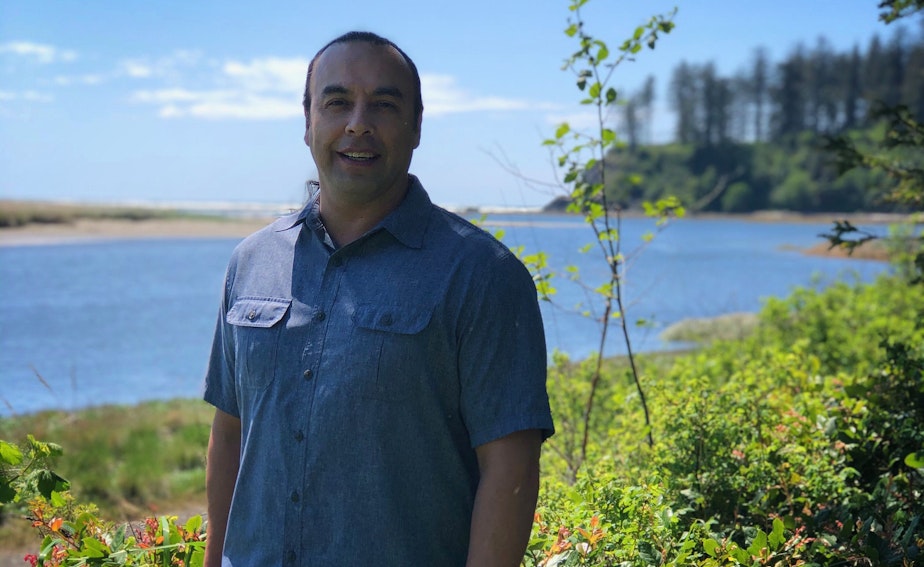This Washington tribe has zero coronavirus cases. They plan to keep it that way

Voices of the Pandemic features people in western Washington on the front lines of the coronavirus outbreak.
At the far corner of the Olympic Peninsula is one of the few places in Washington state with zero confirmed cases of coronavirus.
It’s the Makah Reservation, and the Makah tribal government is determined to keep it that way.
Tribal chair T. J. Greene spoke with KUOW's John Ryan about the tribe's all-out efforts to keep the virus away from the remote homeland known to the Makah as "the beginning of the world."
My name is T. J. Greene. I'm the chairman for the Makah tribe.
To protect the community from the Covid-19 disease, we decided in mid-March to close the reservation to visitors, and so it's been a month and a half. We currently have zero cases, and that’s a blessing so far.
Sponsored
Sitting in my backyard right now, I'm right where a small river enters the Pacific Ocean. If we did Zoom, I could show you: The view’s amazing.
I'm looking at Hobuck Beach out here, looking at the ocean and looking at the mouth of the Wa’atch River. So it's very nice.
We are a fishing community. That's the main source of income for the Makah tribe, for Neah Bay. They haven’t been able to practice their fishery.
The halibut fishery was supposed to take place this week. That's been delayed, and the ocean troll salmon fishery was supposed to start May 1, and that's been delayed until further notice.
That's millions of dollars into the community that ain’t happening right now. And as each day passes, that's going to grow.
Sponsored
So, yeah, it's an economic essential activity, but, for the Makah tribe, it's essential that we protect our elders and protect the lives of our people over that economic benefit right now.
In some fisheries, five to six people are on a vessel, confined space, and if any of them are infected with this virus and take it home -- because they're not all from the same household, they take it to different households -- that would run like wildfire through our community. And we'd be devastated, and that just can't happen.
What our ancestors went through when around 90% of our population was decimated by smallpox in the mid-1800s, that's alive in our oral histories, taught throughout the families. So yeah, it does bring back some thoughts of what it must have been like for our ancestors. We certainly know that we’re vulnerable.
The tribal community that we have -- and I think all tribal communities in the Northwest -- are facing the same thing.
Our elderly are the ones that carry the knowledge, the wisdom. They carry our songs and our spiritual practices. They're the glue that holds our cultural identity together.
Sponsored
If we were to lose a handful of those people, it would just be devastating.
There's some restrictions that are being eased up by the state of Washington, but we do want the communities outside of Neah Bay to know that we are still closed.
Our marina is still closed to visitors. Our reservation highway that comes into Neah Bay is also closed to visitors as well.
During this time when we're restricting it from visitors, it's certainly been a blessing for our community to reconnect to some of these places that we’ve given up for that tourism industry.
We're certainly thankful and blessed that we have such a beautiful area to call our own.
Sponsored
We're fortunate that we're a tribe that was never moved or relocated from its ancestral lands.
We've been here, we say, from the beginning of time.




